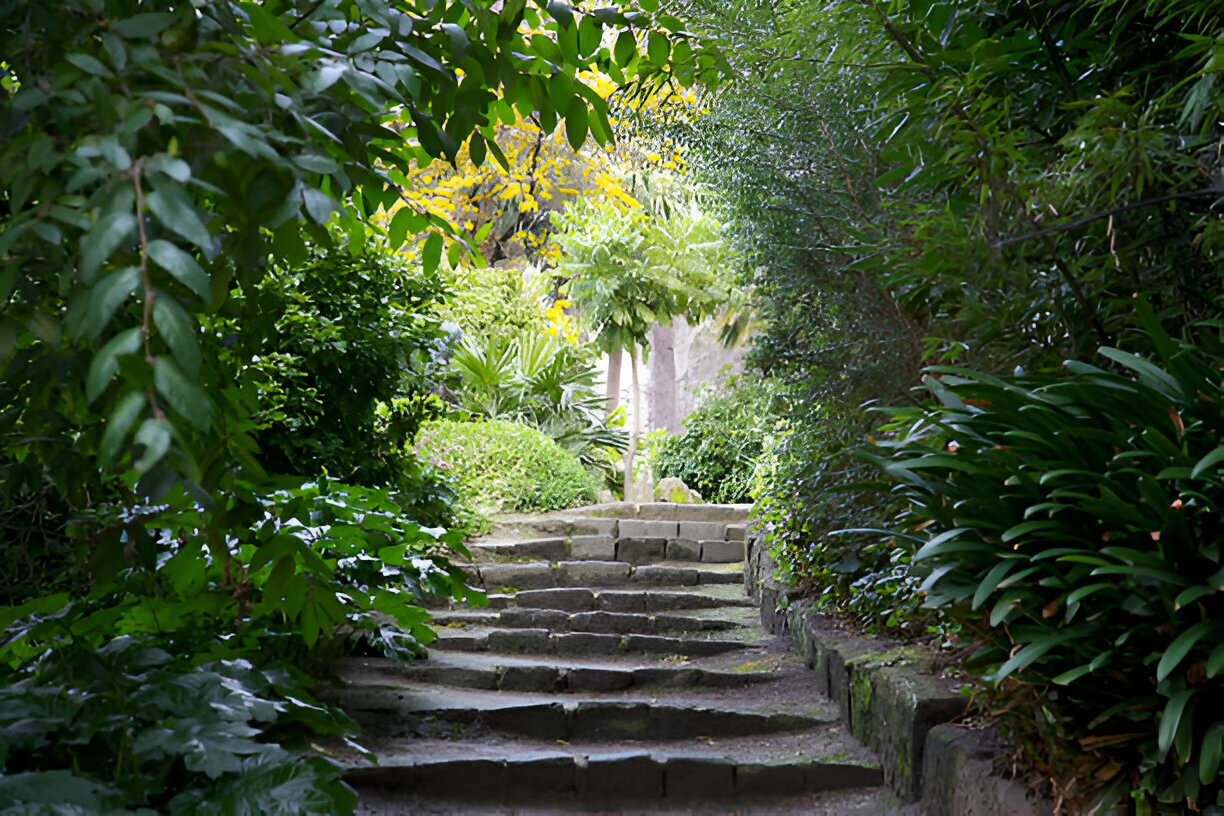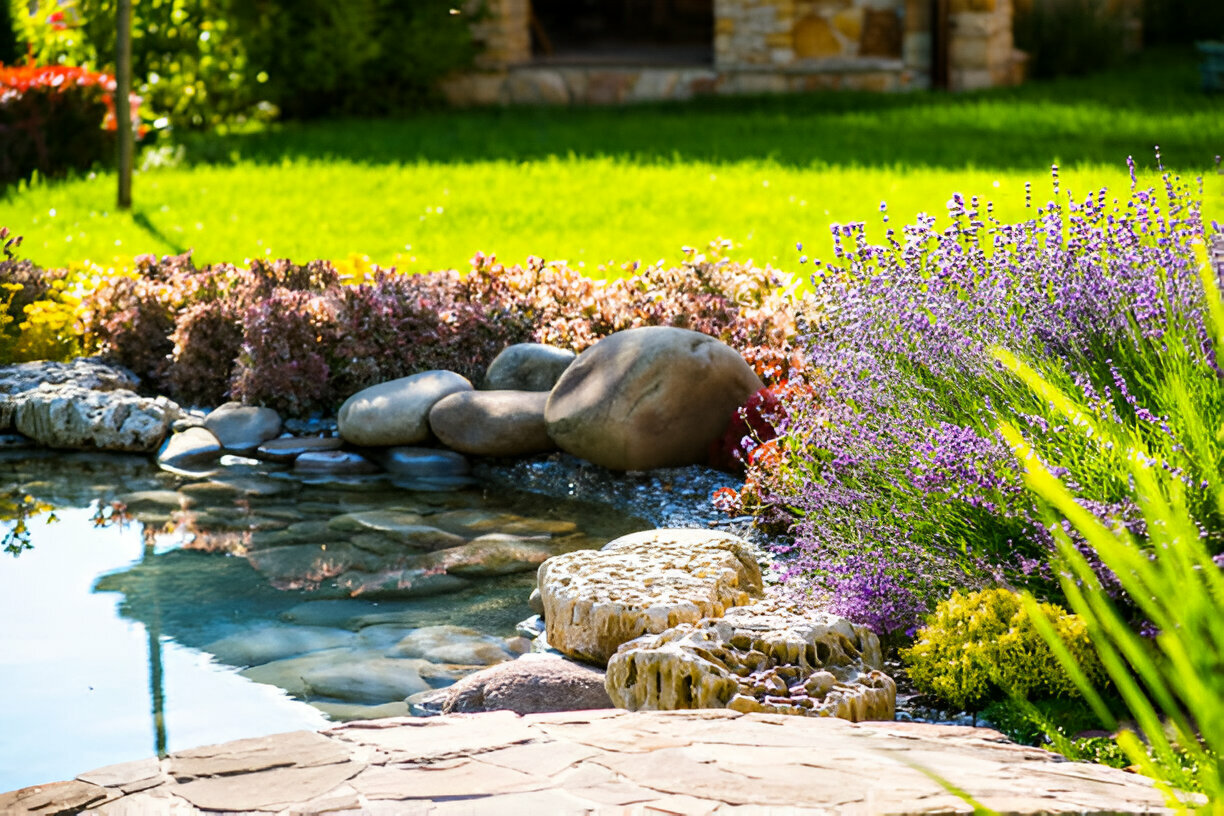Spiritual Gardening: Cultivating Inner Peace Through Nature
Is your garden more than just a collection of plants? Does it feel like a sanctuary where you find tranquillity, inspiration, and a deeper connection to something greater than yourself? If so, you’re already practicing spiritual gardening.
I understand that gardening is a deeply personal and meaningful experience for many. It’s not just about tending to plants; it’s about nurturing ourselves and finding purpose in the rhythms of nature.
In this blog, I will take you on a journey to explore the profound connection between gardening and spirituality. We’ll explore how cultivating plants can foster inner peace, mindfulness, and a sense of interconnectedness with the world around us.
Let’s cultivate beautiful blooms and a deeper connection to ourselves and the natural world as we witness life unfold in our backyards.

What is Spiritual Gardening?
Spiritual gardening is creating and tending to a garden to foster spiritual growth, mindfulness, and inner peace. It is a holistic approach that integrates the physical act of gardening with mental and spiritual well-being.
Principles of Spiritual Gardening
Spiritual gardening is a practice that nurtures both the gardener and the garden, fostering a peaceful and reflective space that supports overall well-being.
Mindfulness and Meditation
Central to spiritual gardening is mindfulness, which involves being fully present and engaged in the gardening process. This practice creates a deep connection with the earth and the natural world. Gardening becomes a meditative activity that focuses on the present moment, helping to quiet the mind and reduce stress.
Connection with Nature
Spiritual gardening emphasizes the importance of connecting with nature. By working with plants, soil, and natural elements, gardeners can develop a deeper appreciation and understanding of the cycles of life and the environment. This connection nurtures a sense of harmony and balance.
Symbolism and Intention
Plants and garden elements are often chosen for their symbolic meanings and the intentions they represent. For instance, lavender might be planted for peace and calm, while rosemary could symbolize remembrance. The layout and design of the garden can also reflect spiritual concepts, such as creating a labyrinth for contemplative walking.
Holistic Well-Being
Spiritual gardening is about physical health as well as mental and emotional well-being. It provides a space for reflection, personal growth, and emotional healing. Cultivating plants and watching them grow can be deeply satisfying and spiritually enriching.
Connection to Mindfulness and Meditation
Incorporating mindfulness into gardening means engaging all the senses in the experience. Feel the texture of the soil, listen to the sounds of nature, and observe the intricate details of the plants. This sensory immersion can be deeply calming and grounding.
You can integrate meditation into the gardening routine by setting aside specific times for contemplation and silence. Simple practices, such as deep breathing while planting or mindful walking through the garden, can transform routine tasks into profound spiritual exercises.

Spiritual Gardening Ideas
Creating a spiritual garden involves integrating elements that foster mindfulness, reflection, and a deeper connection with nature.
Meditation Spaces
Designate quiet areas within your garden for meditation and reflection. Choose a secluded spot and add comfortable seating, such as a bench or a hammock. Surround this space with calming elements like water features, wind chimes, or soft lighting. These additions create a peaceful ambiance conducive to relaxation and mindfulness.
Sacred Plants
Select plants with spiritual meanings to enhance the spiritual atmosphere of your garden. Lavender, known for its calming properties, symbolizes peace and tranquillity. Rosemary represents remembrance and can serve as a reminder to stay mindful of the present moment.
Other plants, such as sage, often used in cleansing rituals, or jasmine, which symbolizes purity, can also add layers of meaning and intention to your garden.
Labyrinths and Paths
Incorporate walking paths or labyrinths into your garden design. With its single, winding path, a labyrinth is a powerful tool for meditation and contemplation. Walking a labyrinth can help clear the mind, reduce stress, and provide insights.
Paths can be made from various materials, such as stones, gravel, or even grass. They can be lined with plants or decorative elements to guide the way and enhance the meditative experience.
Check some of the budget small garden ideas.
Best Plants for Spiritual Gardening
Creating a spiritual garden involves selecting plants that enhance the sense of peace, tranquillity, and mindfulness. Here are some of the best plants for spiritual gardening:
Lavender
Lavender is known for its calming properties and soothing fragrance. It symbolizes love, peace, and relaxation, making it perfect for meditation spaces. The gentle scent can help reduce stress and promote a sense of well-being.
Rosemary
Rosemary symbolizes remembrance and fidelity. Its strong, aromatic scent can enhance focus and mental awareness, making it a valuable addition to any spiritual garden. It’s also used in many cultural rituals for purification.
Common Sage
Sage is widely recognized for its cleansing properties. It is often used in smudging rituals to purify spaces and ward off negative energy. It symbolizes growth and transformation and is used in rituals to connect with spiritual guides.
Common Sage also has high levels of antioxidants and is also an anti-inflammatory. It has many health benefits if taken daily as an herbal tea. Growing sage in your garden can provide a fresh supply for culinary purposes.
Jasmine
Jasmine flowers symbolize purity, love, and spiritual ascension. Its sweet, heady fragrance is also believed to promote relaxation and emotional healing. Jasmine is often planted near meditation areas to enhance the spiritual atmosphere.
Lotus
The lotus has profound meanings in many spiritual traditions, representing purity, enlightenment, and rebirth. It grows in muddy waters but blooms beautifully, symbolizing the potential for spiritual growth when facing life’s challenges.
Holy Basil (Tulsi)
Holy basil, or tulsi, is revered in many cultures for its spiritual and medicinal properties. It is believed to purify the mind, body, and spirit and is often used in religious rituals. Tulsi plants can be planted to create a sacred space within your garden.
White Sage
White sage is another variety of sage commonly used for smudging and cleansing rituals. It is believed to drive away negative energy and promote healing. White sage is also said to help one connect with their spiritual self and be at one with the universe.
Benefits of Spiritual Gardening
Creating and maintaining a spiritual garden beautifies your space and nurtures your emotional, personal, and environmental well-being, making it a holistic practice with numerous benefits.
Emotional Healing
Spiritual gardening offers a therapeutic escape from daily stress and anxiety. Tending to plants and engaging with nature provides a calming effect, promoting mental well-being.
Repetitive and mindful gardening tasks can help clear the mind, reduce stress, and foster tranquility and accomplishment.
Personal Growth
Engaging in spiritual gardening encourages patience and mindfulness. Watching plants grow from seeds to mature plants fosters a deeper connection to the life cycle and the self.
This process can be reflective, teaching gardeners to appreciate the present moment and develop a sense of inner peace. The discipline required in maintaining a garden translates to personal growth and a greater sense of responsibility and care.
Environmental Connection
Spiritual gardening enhances one’s relationship with nature and fosters a profound respect for the environment. Gardeners develop a sense of stewardship toward the earth by actively participating in nurturing plants.
This connection promotes sustainable practices and a deeper appreciation for the natural world, encouraging actions that support environmental conservation and biodiversity.
Spiritual Ornaments for Your Garden
Incorporating spiritual ornaments into your garden can enhance its tranquillity and create a space for reflection and mindfulness. Here are some ideas to bring a spiritual touch to your garden:
Statues and Symbols
Adding spiritual statues, such as Buddha, angels, or other deities, can create meaningful focal points in your garden. These statues beautify the space and provide a sense of peace and inspiration. Placing them in meditation areas or along pathways can remind you of your spiritual journey.
Water Features
Water features like fountains or small ponds bring a sense of tranquillity and the soothing sound of water to your garden. The gentle flow of water can enhance meditation and create a calming atmosphere. Water features attract wildlife, further connecting you with nature and promoting harmony.
Sacred Stones
Sacred stones engraved with meaningful symbols or mantras can add a profound spiritual dimension to your garden. These stones can be placed along paths, in meditation spaces, or around plants to imbue the area with spiritual energy. Symbols such as the Om, mandalas, or personal affirmations remind you daily of your spiritual intentions.

What a Garden Represents in the Bible
Gardens hold profound symbolic meanings in the Bible, representing paradise, peace, and divine presence. The most notable biblical garden is the Garden of Eden, depicted as a perfect sanctuary created by God.
It symbolizes innocence, purity, and unbroken communion with Him. This garden is portrayed as a place of ultimate peace and abundance, where Adam and Eve lived in harmony with nature and enjoyed direct fellowship with God.
Gardens in the Bible often symbolize renewal and divine blessing. For example, in the Song of Solomon, a garden represents love and beauty, while Isaiah signifies restoration and prosperity. The imagery of gardens throughout the Bible reflects spiritual nourishment, growth, and the hope of eternal life in God’s presence.
Final Words
As we’ve explored, spiritual gardening is a transformative journey beyond simply tending to plants. It’s a practice that nourishes our souls, connects us to the rhythms of nature, and fosters a real sense of purpose and deeper meaning in our lives.
We can cultivate vibrant blooms, inner peace, mindfulness, and gratitude by embracing gardening. We can find solace in the soil, inspiration in the sunshine, and a profound sense of interconnectedness with the world around us.
So, if you’re a seasoned gardener or just starting to explore the magic of plants, remember that your garden is more than just a plot of land. It’s a canvas for creativity, a sanctuary for your soul, and a source of boundless inspiration.
